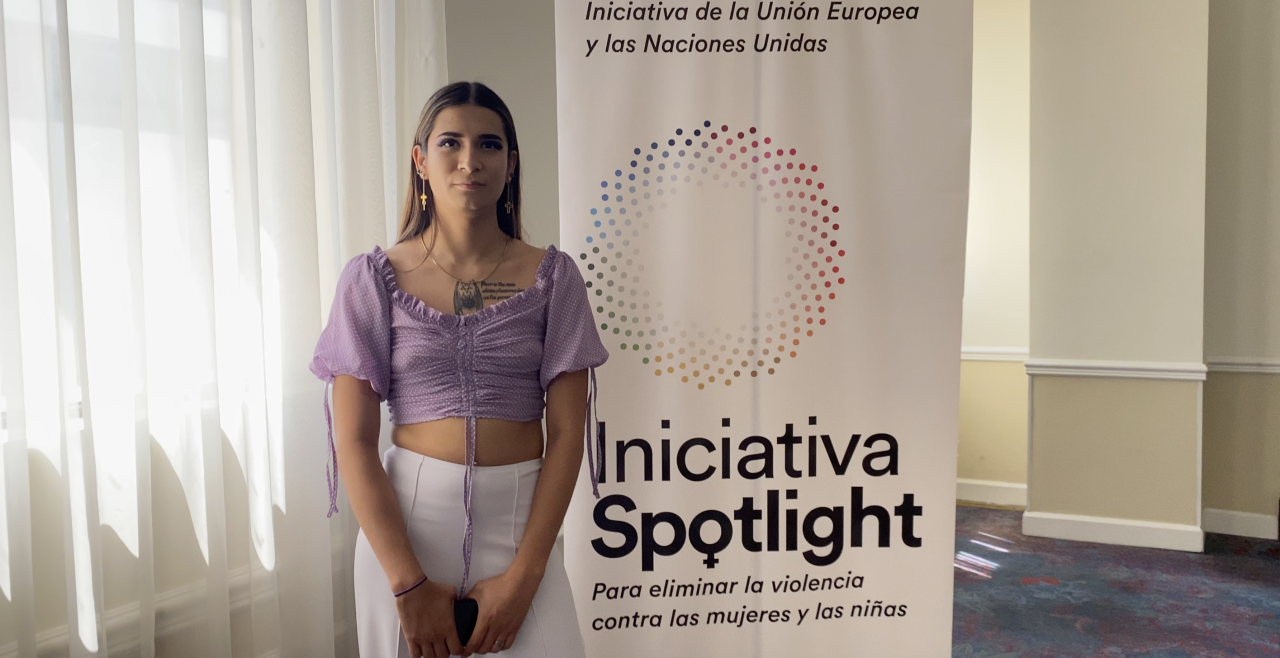Providing healthcare and a safe space for the LGBTI+ community in El Salvador

SAN SALVADOR, El Salvador - "I was kicked out of the house on Christmas Eve. I was in my second year of my degree when my mom told me, 'Never come back,’” recalls Hector. “And I didn’t come back, until she was older - although I always helped her financially. This story is often repeated in our community when we decide to share that we are different.”
Hector is one of the many LGTBI+ people who have found a refuge in Diké, an organization that was founded in 2007 to help prevent HIV transmission among transgender women and reduce discrimination in the healthcare system.
Over the years, the organization expanded its services to include raising awareness among trans people of their human rights and how to safely administer gender-affirming medication.
Diké takes its name from the work of Plato - "Diké is the goddess of justice," explains Modesto Mendizábal, a doctor, founder of Diké and the organization's head of health. From the collective's community centre in San Salvador, Diké provides a host of services to the LBGTI+ community, including sexual health care, psychological care, human rights education, advocacy activities and safe shelter for those who need it, including migrants and displaced persons.
"We take in people who are expelled from their homes because of their sexual identity." - Modesto Mendizábal, doctor and founder of Diké
Essential services
Between 2020 and 2021, Diké received a grant of more than US$29,000 from the Spotlight Initiative via the United Nations Development Programme (UNDP). The Spotlight Initiative is a global partnership between the European Union and the United Nations to eliminate all forms of violence against women and girls. While one in three women will experience violence in her lifetime, LGBTI+ people are especially vulnerable.
Spotlight Initiative has promoted a comprehensive approach to curbing violence through laws and public policies, strengthening institutions, changing norms, providing quality services, improving data on violence, and supporting the women's movements and feminist organizations.
The grant allowed Diké to outfit its first community centre, increasing the number of people that can be treated at the centre’s medical clinic from 50 people a month to 125. An additional 200 people receive psychological care.
"We take in people who are expelled from their homes because of their sexual identity or people who come from far away for a lab test and cannot afford a hotel," explains Mendizábal. The recently expanded shelter has capacity for 20 people.
"We also focus on respecting and taking care of the person. When a person from the LGBTI+ community is here, we give them everything we can: good food, access to culture, accommodation, we help them get a job. We are interested in that, because we want them to live well," Mendizabal adds.
Spotlight Initiative also helped to strengthen health services provided by Diké by increasing the health clinic's access to medicines which are endorsed by the National Directorate of Medicines and the Superior Council of Public Health of El Salvador, according to the doctor.
"Beyond the equipment and the purchase of medicines, the achievement is the satisfaction of the trans women and the LGBTI+ population who are [our] clients. It has an impact on them having better self-esteem, better self-image. It is much more than a purchase, it is a feeling," says Catalina, a trans woman who works at the community centre.
"The achievement is the satisfaction of the trans women and the LGBTI+ population who are [our] clients. It has an impact on them having better self-esteem, better self-image." - Catalina, Diké staff member
LGBTI rights are human rights
In addition, the grant helped improve health and rights education by strengthening Kaleidoscope and the Rivera-Johnson School, two of the programmes implemented by Diké. The former is research-related, while the latter provides education on gender and sexual orientation. Through the Rivera-Johnson School, Diké runs educational talks and training on LGBTI+ issues and related topics to different communities in the country. This effort sensitized more than 6,000 people in the justice and security sector on how to better serve LGBTI+ people.
In March of last year, 58 trans women participated in Spotlight-funded training and workshops that cover human rights, gender-based violence and health in the municipalities of San Salvador, San Martín and San Miguel.
Modesto and Catalina say that Spotlight Initiative's support has opened the door to support from other international agencies, non-profit organizations and donors. "It was like a before and after... From the Initiative's support, other partners began to approach us and everything started to flow. Spotlight was like a magic wand," they explain.
Spotlight Initiative and UNDP will continue strengthening essential services and deliver more efficient, effective and comprehensive care to girls, adolescents, women and vulnerable populations with the aim of ending gender-based violence for good.
